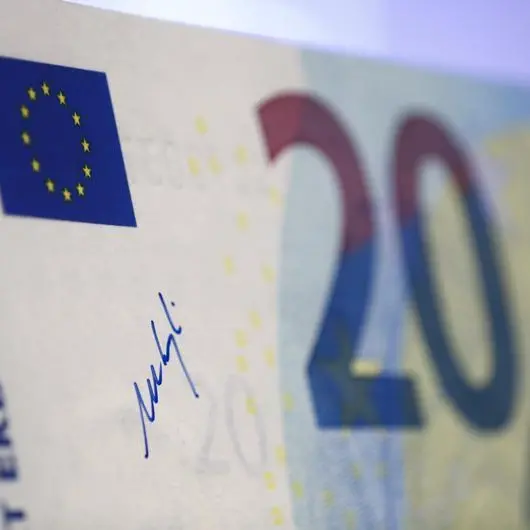PHOTO
Euro zone yields fell on Tuesday after data showed German investor morale declined in November, reflecting concerns that U.S. President-elect Donald Trump's proposed policies could hit the European economy.
The uncertainty unleashed by Trump's election victory and the collapse of the German government overshadowed expectations.
However, investors were not willing to drive yields down significantly before the opening of the U.S. market, which was closed on Monday.
Short-dated U.S. Treasury yields jumped to a fresh 3-1/2-month high on the so-called Trump trade.
Germany's 10-year government bond yield, the benchmark for the euro area, dropped to 2.299%, its lowest since Oct. 30, and was last down 2 basis points (bps) to 2.30%. It was roughly unchanged before the data.
Money markets nudged up their bets on future European Central Bank rate cuts. They priced in a depo rate at 2% in July , from 1.93% before the data. The depo rate is currently 3.5%.
Protectionist policies from the incoming U.S. administration will hamper global growth, and Europe must be better prepared than in 2018 when Trump's previous administration took similar steps, European Central Bank policymakers warned.
Germany's 2-year yield, more sensitive to expectations for policy rates, fell to 2.111%, its lowest since Oct. 28, and was last down 1.5 bps at 2.12%.
The political crisis in Germany is in the spotlight, with investors aware it will take time to understand whether a new government will boost public spending to stimulate the economy.
Germany's Social Democrats, Greens and conservatives have proposed Feb. 23 as a date for a new election.
The conservative Friedrich Merz, who is in poll position to become chancellor, has set two prerequisites for discussing a reform for the so-called debt brake: having conditions for the money to be invested in pro-growth programmes and social welfare.
“Absent an even larger economic shock there are still reasons to be somewhat skeptical about a large easing in German fiscal policy under a new government,” said Matteo Mamprin, rates strategist at JP Morgan, who sees the recent “term premium (on Bund swap) repricing quite excessive.”
Germany's 10-year asset swap spread (ASW) was at -2.5 bps after hitting -7.45 bps last week, its lowest since at least 2003, also on concerns about a potential increase of Bund supply.
Swap spreads, the difference between the 10-year government bond yield and the 10-year swap rate, reflect risk appetite in the broader financial market while being a gauge of an issuer's credit quality.
Swap spreads on German bonds have been tightening since March 2023 - with the 10-year at around 80 bps - when the ECB started to unwind its portfolio of assets, increasing the supply of government bonds in the market.
Italy’s 10-year government bond yield, the benchmark for the euro area’s periphery, was down 1.5 bps at 3.58%, after hitting 3.573%, its lowest since Oct. 30.
(Reporting by Stefano Rebaudo; Editing by Mark Potter)





















